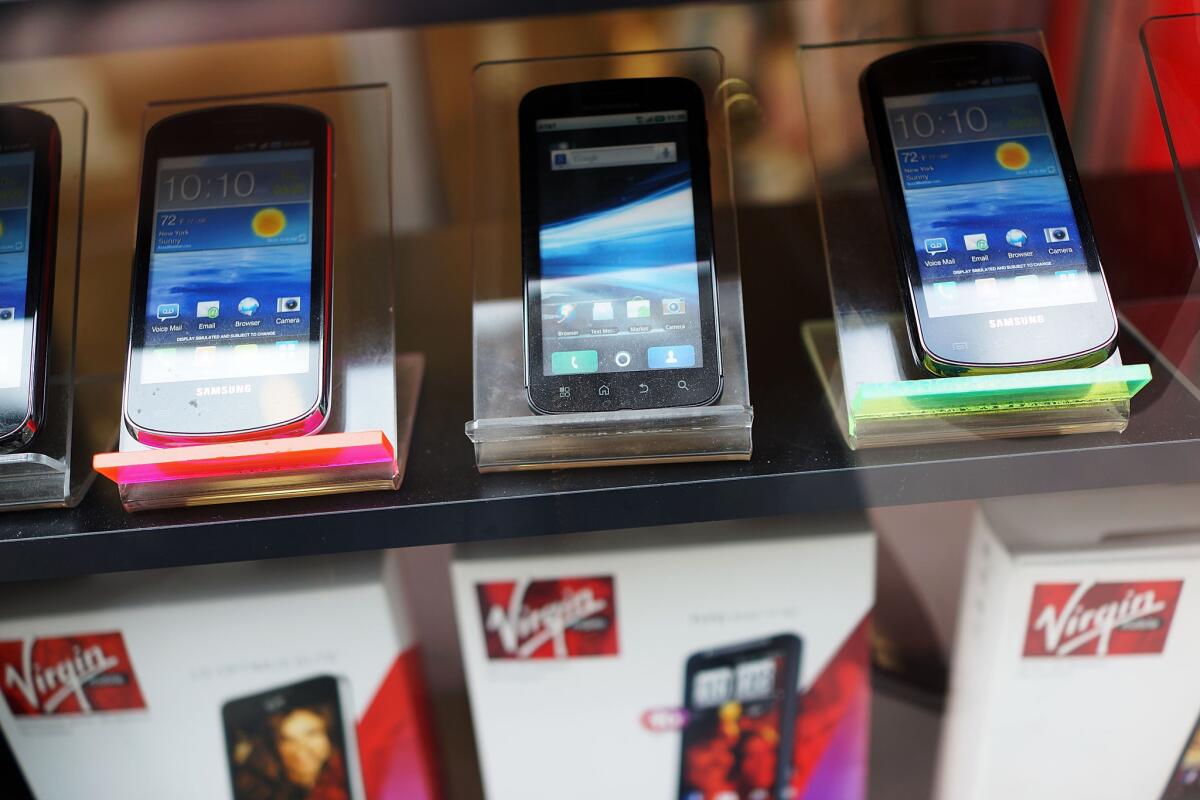Unlocking cellphones is legal again; here’s the skinny on the law

- Share via
In a big win for consumers, President Obama on Friday signed into law the Unlocking Consumer Choice and Wireless Competition Act, which makes it legal once again for consumers to unlock their cellphones.
What is cellphone unlocking?Cellphone unlocking is the practice of changing the phone’s settings so that it can work with any cellular network, not just the one that sold the device. With the ability to unlock phones, consumers can change carriers without having to buy new devices. The consumer can also sell or buy used unlocked phones.
But there is a caveat. Consumers will still be restricted by the terms of the service contracts they sign with their carriers. For many, this means they will not be able to unlock their devices until two years after they were purchased, but it varies by device and carrier.
Why did unlocking cellphones become illegal?
Cellphone unlocking was legal until the Library of Congress chose not to renew an exemption to the Digital Millennium Copyright Act (DMCA) in 2012. Wording in the act, which is meant to prohibit copyright infringement, makes cellphone unlocking illegal.
From 2006 through 2012, the Library of Congress made an exemption to the act that allowed consumers to unlock their cellphones. Then in 2012, the agency elected not to renew the exemption, saying there were plenty of ways for consumers to purchase cellphones that already came unlocked. By not renewing the exemption, it became illegal for consumers to unlock cellphones without permission from their carriers.
The act is only temporaryThe Unlocking Consumer Choice and Wireless Competition Act reverses the Library of Congress’s 2012 decision, but it is only a temporary solution. The Library of Congress reviews exemptions to the DMCA every three years, and it will do so again in 2015.
Limited to cellphones
The act does not legalize the unlocking of tablets or any other devices. Potentially, this could mean that consumers will not be able to legally unlock future cellular-enabled smartglasses or smartwatches that they buy from carriers. The bill, though, does instruct the Library of Congress to consider making exemptions for those devices when it reviews exemptions again next year.
Permanently legalizing cellphone unlocking
Sina Khanifar, the man behind the petition calling for cellphone unlocking, said he strongly expects the Library of Congress to renew the exemption next year, but now he and several others from the tech industry are pushing for Congress to permanently legalize the practice. Currently, nonprofit consumer groups are wasting tens of thousands of dollars every three years for lawyers to argue the case for cellphone unlocking, he said.
“Really, the underlying bill needs to be fixed, and that’s what we’re trying to get Congress to do,” he said, adding that consumers can learn more at FixTheDMCA.org.
Twitter: @sal19







